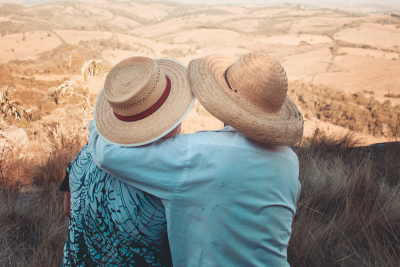By Yamila García
Growing up without having a name for my differences was definitely a challenge. However, at many times along that path, I often identified with other people. For example, I have seen someone separating their food on a plate so it does not touch, just as I have always done. That made me feel that it wasn’t just me. Knowing that there were more people like me was helpful, even if I didn’t fully understand what that meant. Other times, I have met very introverted children like me, who contained their curiosity and desire to explore. I could see it and understand it because they looked like me: quiet, distant, but with an active gaze, visualizing themselves doing what they wanted so much but didn’t dare.
When I was little, I hardly ever expressed what I felt. However, when I saw children overwhelmed by stimuli, my heart would break because I knew what they were feeling. Many times, I saw children labeled as strange or complicated, and I identified with them. This brought relief in knowing that I was not alone. I think this somehow helped me understand that a portion of society was simply different from the rest, and that it was important not to fight my differences, but to accept them. Accepting what causes you pain, what segregates you, and brings you problems is not easy at all. However, by seeing others go through the same thing, I realized that things could be done to avoid it and that our differences are not the main reason for the consequences we face, but rather the lack of knowledge and understanding from others.
I appreciate the chance to write about my experiences because I see it as an opportunity for others to relate to me. I know it’s something small, but it helps me more than I could imagine. For a long time, I thought that several things happening to me were just my imagination. Seeing them in someone else helped me trust what I felt and not think that I was making something up just because I couldn’t explain it. I am grateful for all those people I have met since my childhood, who showed me that I was part of something not often talked about, much less understood.
